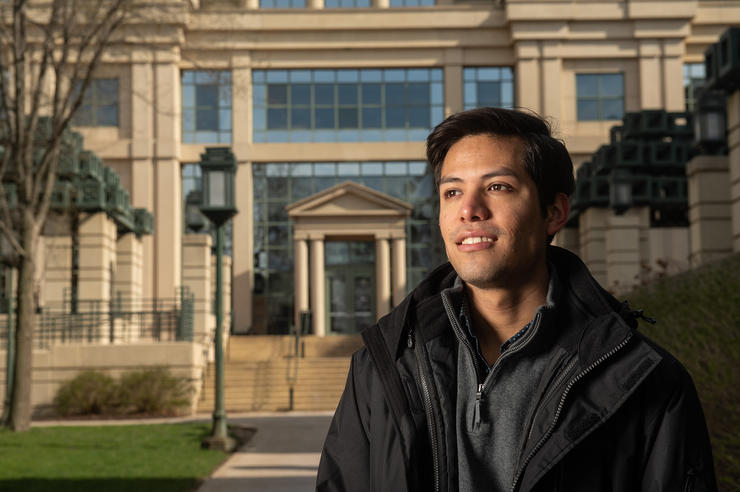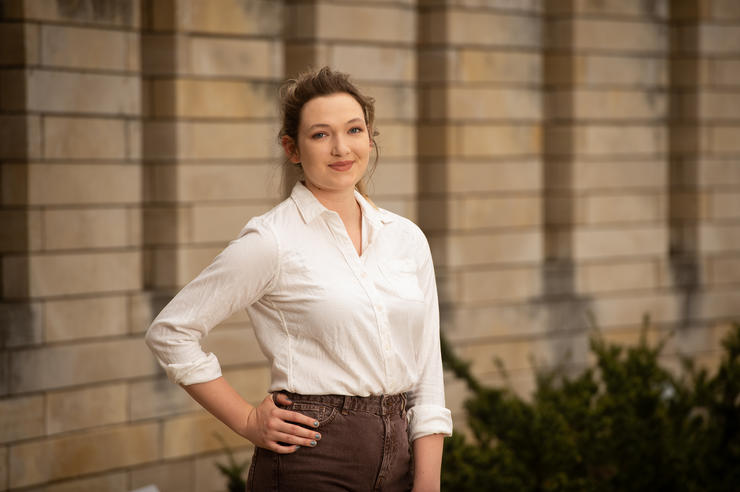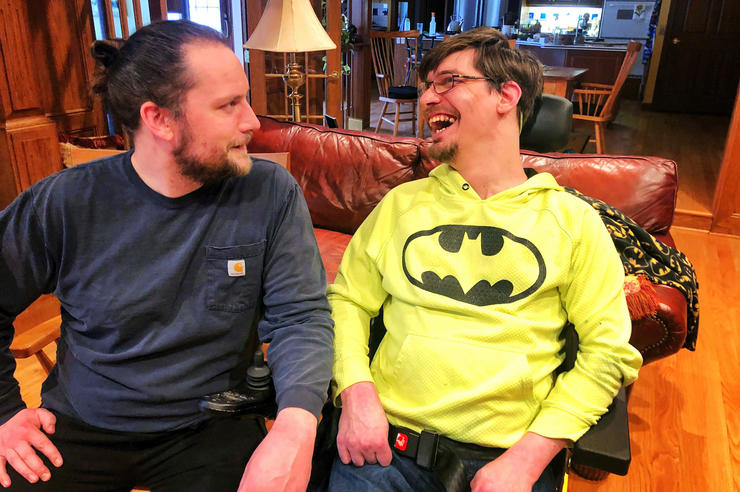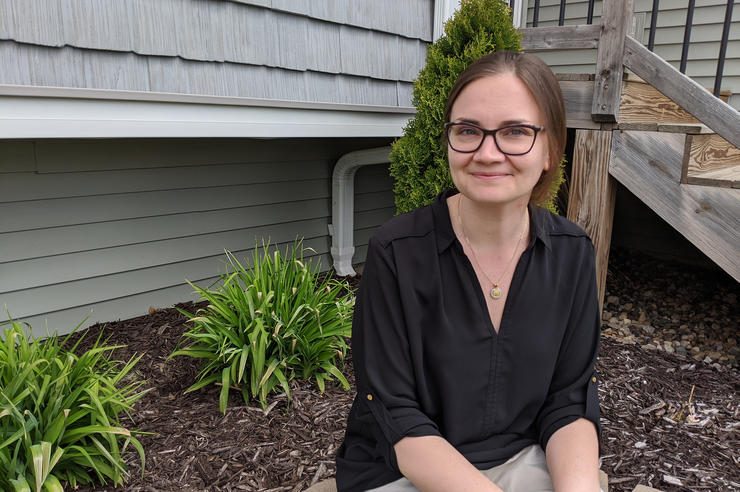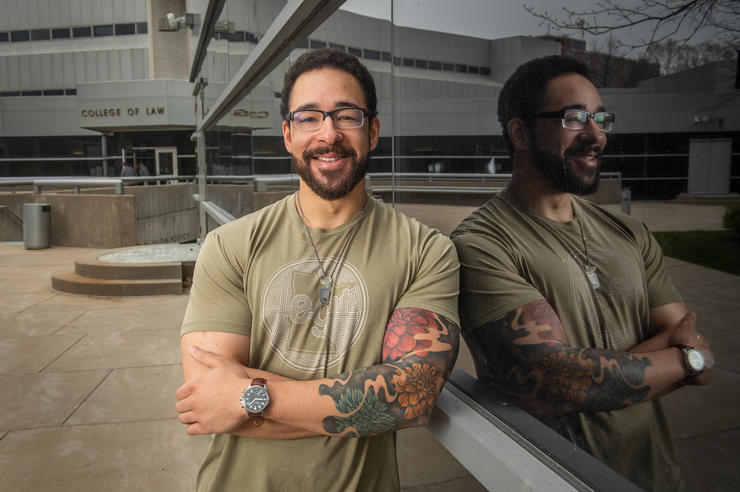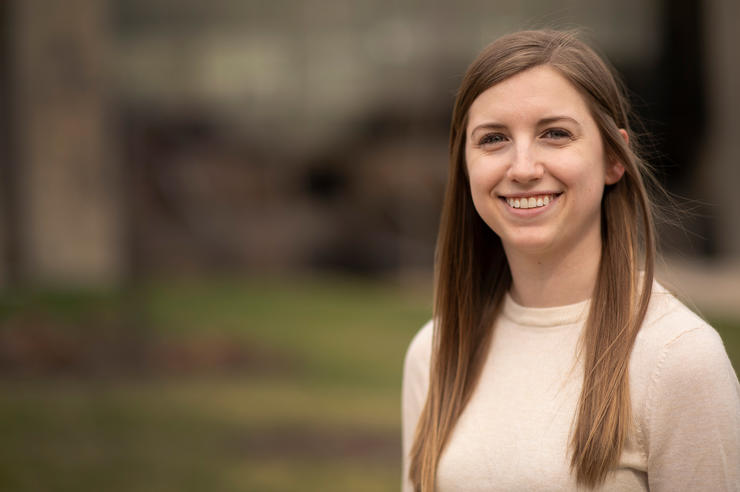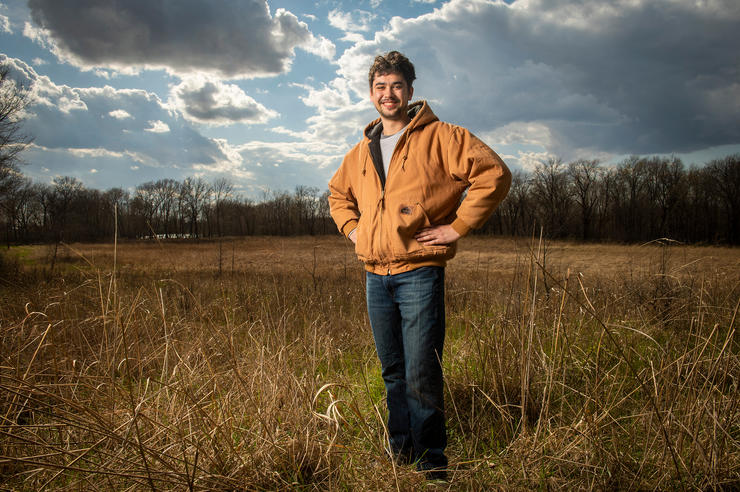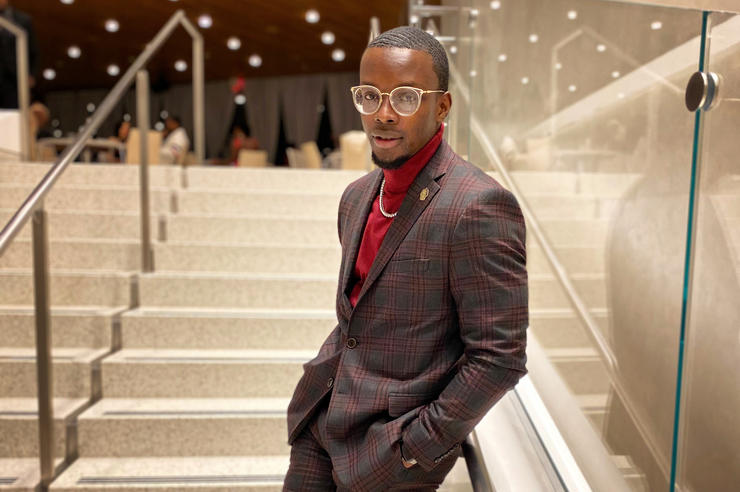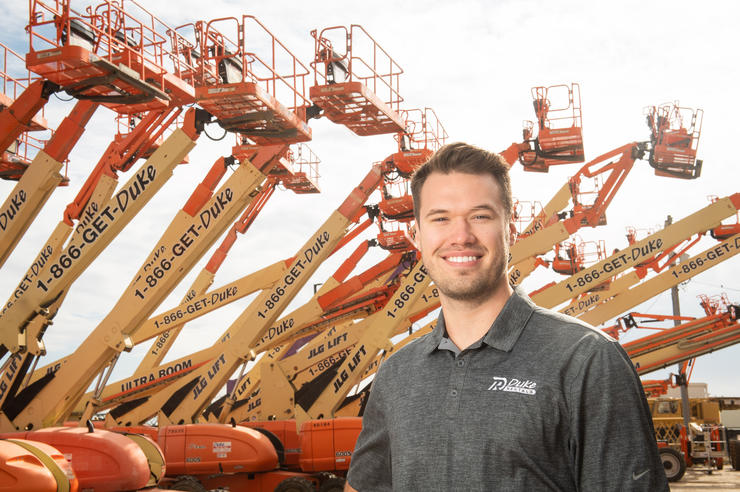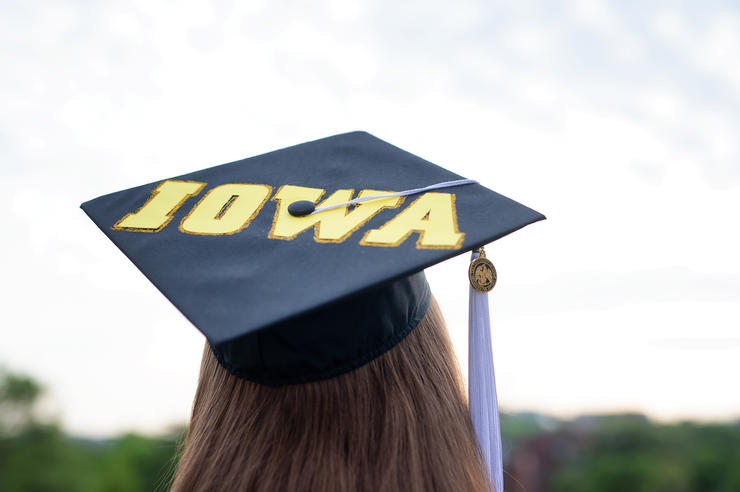Blending the art and science of nursing
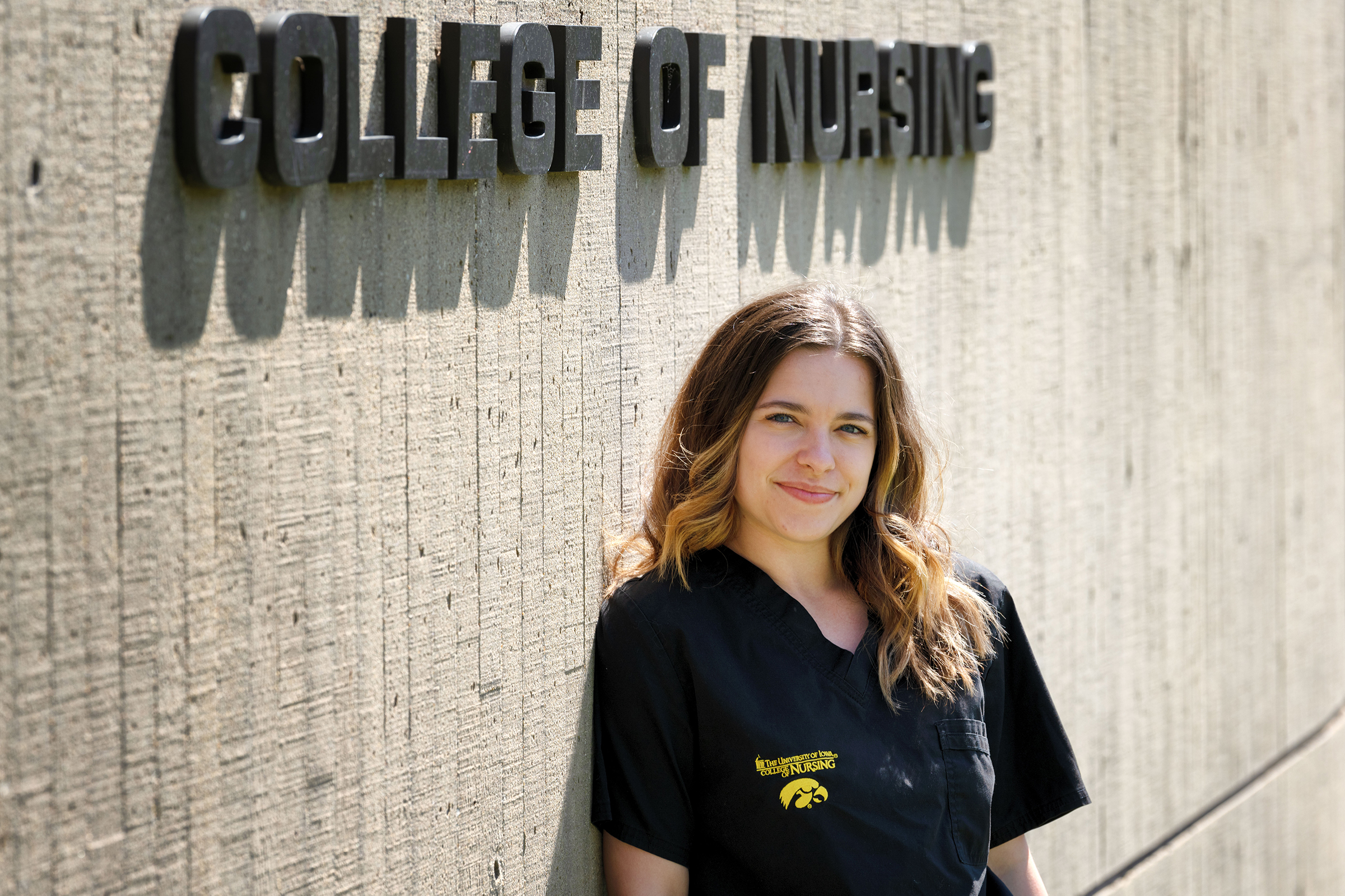
Degree: Bachelor of Science in Nursing
Hometown: Bellevue, Iowa
Future plans: Work on the cardiac intermediate care unit at University of Wisconsin Health
As a child, Isabella Penniston would tell people she wanted to be a scientist when she grew up.
And in high school, the Bellevue, Iowa, native discovered a love of nursing too. But it was during her second year at the University of Iowa that she discovered she could merge her early desire to be a scientist with her passion for helping patients. Several undergraduate research experiences over the past few years have changed how she thinks of her profession.
“I never really thought about nursing in a research context,” says Penniston, who will graduate this spring with a BS in nursing. “I don’t think a lot of people do because it’s not something we think of nurses doing. I didn’t know that people built careers off nursing research. Being able to put research within the context of a career I love so much already is amazing. It opened up a whole lot of new doors to me.”
“I liked how downtown and campus were so merged together. It was a perfect balance of a small town, which I was used to, and a bigger city. It was comfortable but also new enough that it was exciting.”
A medical terminology class in high school got Penniston thinking about a career in health care—she originally was leaning toward studying musical performance. While shadowing a doctor in Davenport, Iowa, Penniston was drawn to the relationships the nurses had with their patients and patients’ families.
“I realized that I not only liked the science part, but I also really liked the social aspect,” Penniston says. “I think as a nurse you form deeper relationships with patients than other health professionals get to do. So I set my sights on nursing and ran with it.”
A health sciences-specific tour of Iowa’s campus cemented her desire to be a Hawkeye. She applied to the College of Nursing as an early admission nursing student.
“Because the College of Nursing is so small, I could tell it would be a super personal experience,” Penniston says. “I also liked how downtown and campus were so merged together. It was a perfect balance of a small town, which I was used to, and a bigger city. It was comfortable but also new enough that it was exciting.”
Penniston took part in the India Winterim during her sophomore year, and it was there she was first exposed to research. The group created a resource that was translated into two languages for people with limited resources to help family members prevent bed sores.
“That trip was one of the best things I did during college,” Penniston says. “I still use things I learned there today when taking care of patients in the hospital.”
She also met her future research mentor, Associate Professor Stephanie Gilbertson-White, on the trip. That spring, Penniston helped Gilbertson-White develop content for a website designed to help rural cancer patients self-manage cancer- and treatment-related symptoms.
Through the Iowa Center for Research by Undergraduates (ICRU), Penniston undertook an independent side project examining whether such symptom-management interventions had an impact on the depression and anxiety levels of the patients involved in Gilbertson-White’s study. She was invited to present her findings at the Midwest Nursing Research Society conference in Kansas City and a conference at the University of Iowa Holden Comprehensive Cancer Center.
Penniston is currently working with Gilbertson-White to analyze how cancer patients experience symptoms when they also have other chronic conditions, with a goal to better specialize interventions for specific symptoms. She created the interview guide used in the study—which has been put on hold during the COVID-19 pandemic—and piloted it on a select set of patients. She was invited to present this work this spring at the American Academy of Hospice and Palliative Medicine conference in San Diego and the Oncology Nursing Society in San Antonio, Texas, but both were canceled due to COVID-19.
The University of Iowa College of Nursing is at the center of innovation and discovery, where new ideas for nursing care are developed, tested, applied to patient care and then distributed throughout the world as best practices. In partnership with the University of Iowa Hospitals and Clinics, the college operates a state-of-the-art Nursing Clinical Education Center, which features several high-fidelity simulation labs where students practice sophisticated and complex nursing care in specialty and clinical situations to improve health care delivery and practice.
Gilbertson-White was impressed by Penniston during the India Winterim, saying her clinical demeanor and approach to learning was impressive for a sophomore yet to start her official nursing coursework.
“Since that time, Bella has been deeply involved in research both as a member of my team and the College of Nursing Young Scientist Program,” Gilbertson-White says. “She has been the recipient of research funding from the ICRU and the College of Nursing Nancy Stence Creason Award. Most impressively, she has had her research accepted for presentation at prestigious national conferences. Bella approaches her work with maturity and strives for excellence. It has been a pleasure working her, and we are proud to call her one of our grads.”
Along with her research work, Penniston served for three semesters as a supplemental instruction leader in general chemistry for people who were interested in becoming a nursing major. She says she never thought she would be comfortable doing that, but it made her realize she would like to teach in some capacity in the future.
Penniston says she never could have expected to develop such close relationships with the nursing faculty.
“I feel comfortable texting them with questions, or stopping to chat when I see them at a restaurant,” Penniston says. “It’s not just during office hours. That has made a huge difference, and without it, my experience here would have been much different.”
The current worldwide health situation has affected everyone, but its impact is especially being felt by students graduating this spring.
“We’re still going to get our degree, but you go through four years of school and you work hard and you just want to walk across that stage so badly,” Penniston says. “Not being able to do that is disappointing. I totally understand it, especially being in health care, but it’s still disappointing. We’ll figure something out, but it almost feels like we were done with college before we were ready to be.”
Penniston has had a unique view of the pandemic as a nursing assistant at UI Hospitals & Clinics, where she has worked for two years.
“It’s been kind of scary, not just for me, but for all my patients,” Penniston says. “It makes you think a lot about what an important role you play in someone’s care, but you also can be a risk to them. I’ve been taking my temperature like a madwoman because I don’t want to go into work and not know I’m sick.”
Penniston says she feels well prepared to go into the real world in large part thanks to the clinical experience offered by the College of Nursing.
“A lot of colleges and universities don’t require nearly the number of clinical hours we do,” Penniston says. “I feel a lot more comfortable walking into a patient’s room than I did even a year ago. That’s a huge testament to how great the clinical experience has been.”
Penniston will start this summer as a nurse on the cardiac intermediate care unit at University of Wisconsin Health. But she is not finished with research. She says she eventually plans to return closer to home and pursue her PhD, hopefully at Iowa.
